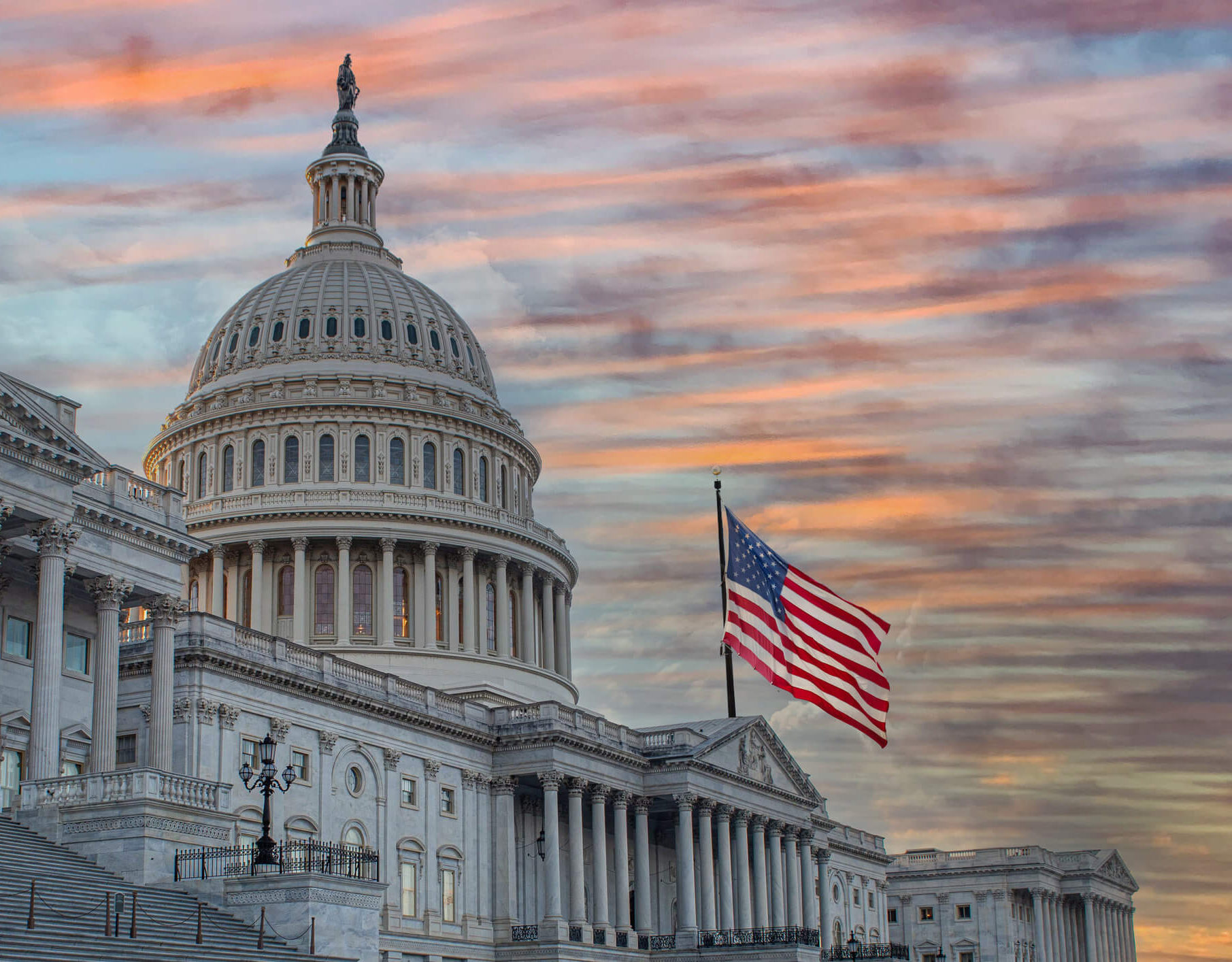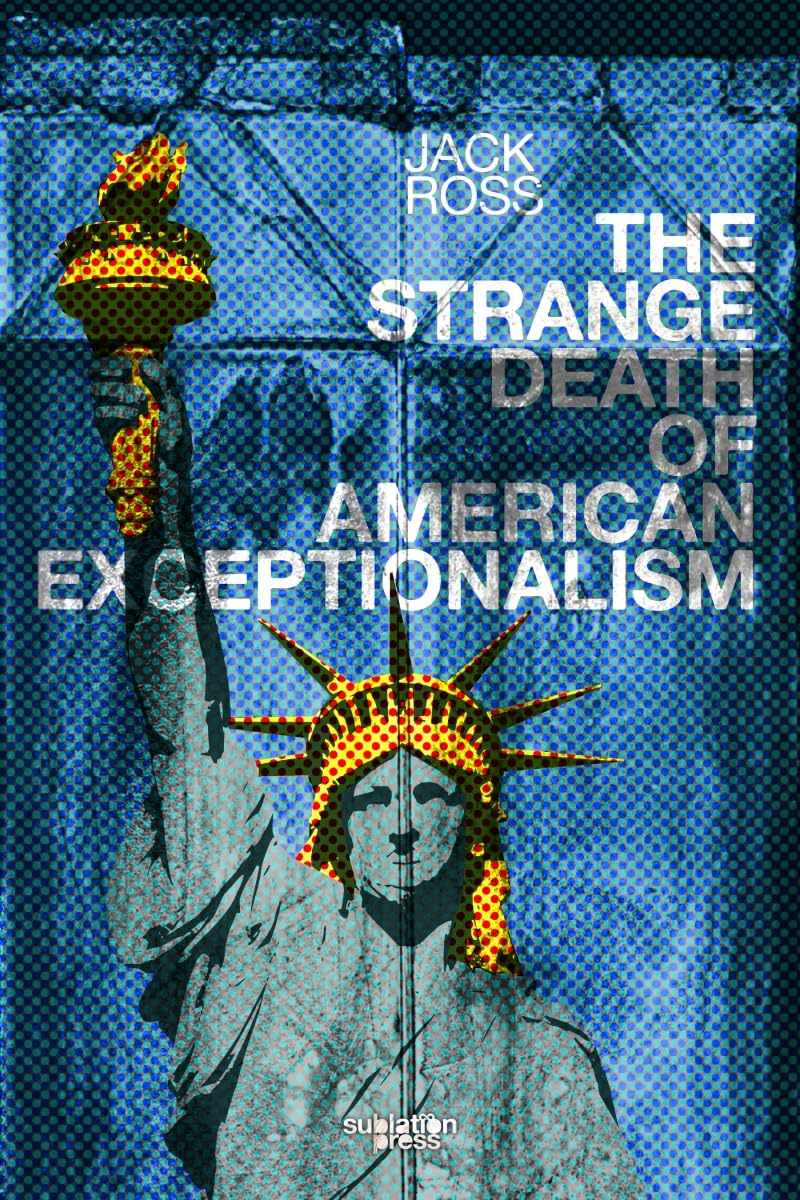He comes from a long line of Brooklynite Jewish socialists. His last book was an exhaustive history of the Socialist Party of America. And his new one, The Strange Death of American Exceptionalism, was just put out by the Marxist publisher Sublation Media. But the idiosyncratic author Jack Ross flirts with conservative thought. In his latest book, articles from the American Conservative get cited aplenty. The entry for Ross Douthat is among the longest in its index. And Ross is bitter with the American left, which has abandoned a legacy that it once proudly claimed for itself—that of the American Revolution, or what Ross describes as “the value system derived from the Declaration of Independence and the Bill of Rights.” Throughout the book, Ross uses the shorthand “the American Creed” to refer to this value system.
The Strange Death of American Exceptionalism arrives at prescriptions firmly set in the political middle, never quite daring to swerve too far to the right. Ross tries to find a point on the American political compass that is social-democratic in economics and moderately conservative in culture. He pleads for a revival of the “vital center,” a term coined by the eminent twentieth-century liberal intellectual Arthur Schlesinger, Jr., and the protagonists of the first half of Ross’s story are Cold War liberals. Having Soviet despotism as a foil brought out the best in American liberalism, Ross believes. Anticommunism, he argues, was not just a negation but had “positive values,” above all “the principles of civil liberty and a free society that distinguished the West from Communism.”
What led “American exceptionalism” to the “strange death” of Ross’s title? One fateful turning point in Ross’s account is the Vietnam War, which discredited liberal anticommunism and set belief in American exceptionalism on a path of decline. Another is the second Iraq War under George W. Bush, which discredited the version of American exceptionalism embraced and promoted by the evangelical Christians who were crucial to Bush’s political success. Ross is fair in his treatment of the evangelicals—he argues neoconservatives exploited evangelical Protestantism—and holds Bush accountable for this second loss of confidence in American exceptionalism.
A reaction against Bush’s catastrophic presidency and the voters who had made it possible led to Barack Obama’s triumph in 2008 and the wave of social liberalization that subsequently swept the nation. With the receding of the high tide of evangelicalism in the early 2000s vanished also the intense religiosity that had made the United States stand out from its fully secularized European partners. Less than a quarter century after the George W. Bush administration, the country is unrecognizable.
The country has changed in ways that the majority of Americans wasn’t consulted about. Instead, we have witnessed the imposition of the values of the “New Class” that has constituted the vanguard of the Democratic Party after 1972: a class made up of academics, progressive activists, nonprofit operatives, and the like. Members of the New Class are reactionaries against American exceptionalism, saying that America “was never that great” but rather exceptionally evil, racist, white supremacist, and oppressive toward all “marginalized” groups in history.
One is sometimes overcome by the feeling that what Ross is trying to promote is the worn-out bromide that America is above all an “idea.”
What this class imposed was a “successor ideology” to the American Creed, as Ross puts it in reference to the term coined by Wesley Yang. This successor ideology is “intersectionalism,” which together with neoconservatism is the great villain of Ross’s book. In perhaps the most polemically striking moment in these pages, and one surprising for a man of the left, Ross calls for “no less thorough a purge of the successor ideology from American life as of Communist influence at the dawn of the Cold War—a process that in fact was mostly complete before [Joe] McCarthy’s rise, with the conviction of Alger Hiss, investigations of Hollywood, and expulsions from the labor movement.”
And what will be left after this great purge? The American Creed and a strengthened “vital center.”
That’s well enough, but in reading the book, one is sometimes overcome by the feeling that what Ross is trying to promote is the worn-out bromide that America is above all an “idea.” At times it’s difficult to tell whether for Ross the concepts of the “American Creed” and “American exceptionalism” are interchangeable or not. There is no doubt that he cherishes the former while observing that the latter is frequently misused in propagandistic ways by neoconservatives.
This paragraph from Ross’s introduction boils down several strands of thought:
The idea that unifies the Cold War liberal definition with both religious and secular right-wing definitions of American exceptionalism is that America is a type of civilization different from all others, existing in the course of human events on terms exempting it from the normal cycles of rise, decline, and fall afflicting other nations and civilizations throughout history. The common secular version of this belief, which is credited to neoconservatives but has generally been shared by most liberals, is of America as a “propositional nation”—in the simplest terms that America is founded on an idea rather than shared ancestry or culture.
But as Ross explains in reference to books such as Kevin Phillips’s Cousins’ Wars and David Hackett Fischer’s Albion’s Seed, the Protestant “folkways” that settled what later became the United States had each their own “sectional tribal loyalty,” and therefore “the roots of American civilization were not those of a ‘propositional nation.’”
The process of national consolidation was long and arduous, and it perhaps wasn’t complete until the New Deal. By that point, the various distinct types of Protestantism had become one component of the “triple melting pot,” a coinage by the mid-twentieth-century sociologist Will Herberg, whom Ross favorably cites. This was a melting pot “with three separate compartments to which the arriving ethnic groups were assigned on the basis of their religious background—either Protestant, Catholic, or Jewish.”
With the decline of church attendance today, even this religious background has become a fading memory for many Americans. Yet with the melting away of these inherited distinctions comes a great promise, in Ross’s view, “of a newly assimilated American nationality emerging on the other side of the demise of American exceptionalism.”
This leaves Ross to hope for “a reaffirmation of the melting pot, of the American nation that will succeed the four-century Anglo-American epoch” that Kevin Phillips described. This reaffirmation “should naturally accompany the restoration of the American Creed by the emerging multiracial silent majority.”
In other words, the basis for the new assimilated American identity will be an “idea,” a Creed. As an avid reader of the American Conservative, Ross may have come across one of the best critiques of this belief. In a 2018 article titled “America Isn’t an Idea,” Emile Doak readily acknowledges the appeal that a “civil-nationalist” view of American identity can have. “It forges a sense of unity out of a naturally fractured polity,” Doak concedes. “Americans’ diverse ancestral homelands were always going to pose a challenge to the creation of a national identity.” But Doak counters that
We don’t feel American out of a reverence for the Lockean liberalism that animates our Founding documents, but because man is inherently shaped by his place. Relying on an idea to provide meaning to national identity is anthropologically unsound; man requires more elementary cultural practices to foster the type of allegiance necessary for national unity. The places that we call home—and the cultural practices that emerge from those places—elicit a much greater allegiance than any abstract idea ever could. . . . Despite the relative youth of this country, particular cultural elements have emerged that provide the deeper sense of familiarity and home that the civic-nationalist view of identity lacks.
As a concept, the melting pot provides a means to overcome the inevitable differences that are inherent in a body politic whose members are drawn from all parts of the world. But a Creed is something quite different from an unselfconscious feeling of familiarity with one’s place and people. If you melt away distinctions, you may well come up with a common denominator in civic nationalism. The question, however, is whether most people—who derive their sense of assurance and identity from a place they call home—are eager to see themselves cast into a bubbling pot.
















